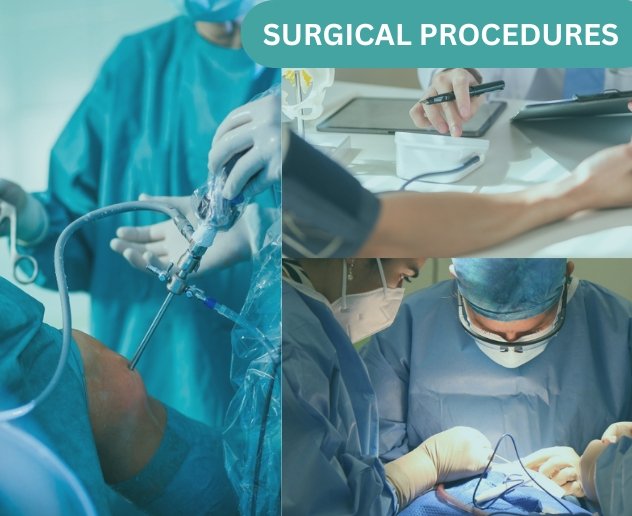REPLACEMENT SURGERY

Compassionate Care for yourREPLACEMENT SURGERY

Best Knee Replacement Surgery in Ahmedabad
It is more simply referred to as orthopaedic replacement surgery since it involves the surgical decimation of a joint and insertion of a functional artificial joint or prosthesis. Consequently, this comes up in a patient with osteoarthritis or a patient suffering from a fracture, among other joint-related problems, to relieve pain and increase stability in that joint.
SYMPTOMS
Severe Pain
Joint Deformity
Swelling & Inflammation
Stiffness & Limited Mobility
Grinding or Clicking Sounds
No Relief from Other Treatments
Types of Joint Replacement Surgery
1. Hip Replacement
This procedure replaces a damaged hip joint with an artificial implant to relieve pain and improve mobility. It is commonly recommended for arthritis or hip fractures.
Pre Surgical
Evaluation
-
 01. Pre Surgical Evaluations
01. Pre Surgical EvaluationsThe patient’s health and the joint in terms of damage will be assessed, and the advisable timeline will be well drafted.
-
 02. Imaging Tests
02. Imaging TestsUtilising the joint views through the X-ray, MRI and CT scans suggested above will assist greatly.
-
 03. Anesthesia Evaluation
03. Anesthesia EvaluationThe anaesthesia team assesses any patient contraindications for general or regional anaesthesia.
-
 01. Anesthesia
01. AnesthesiaAn injection prosthesis, which consists of metal, plastics, and ceramics, is injected to make the joint painless.
-
 02. Implantation
02. ImplantationAn injection prosthesis, which consists of metal, plastics and ceramics, is injected into the joint that is to be replaced.
-
 03. Duration of Surgery
03. Duration of SurgeryThe duration of the surgery differs. However, 1 to 2 hours is enough, provided the joint and the case aren’t complicated.
Surgical
Procedures

After care for Replacement Surgery
Patients with chronic degenerative joints who don’t get well with conservative measures are well-fit and indicated for orthopaedic replacement surgery. The right surgical approach, along with the physiotherapy program, is to be undertaken after a competent patient assessment before the surgery.

The patient’s health and the joint in terms of damage will be assessed, and the advisable timeline will be well drafted.
Utilising the joint views through the X-ray, MRI and CT scans suggested above will assist greatly.
The anaesthesia team assesses any patient contraindications for general or regional anaesthesia.

An injection prosthesis, which consists of metal, plastics, and ceramics, is injected to make the joint painless.
An injection prosthesis, which consists of metal, plastics and ceramics, is injected into the joint that is to be replaced.
The duration of the surgery differs. However, 1 to 2 hours is enough, provided the joint and the case aren’t complicated.

After care for Replacement Surgery
Patients with chronic degenerative joints who don’t get well with conservative measures are well-fit and indicated for orthopaedic replacement surgery. The right surgical approach, along with the physiotherapy program, is to be undertaken after a competent patient assessment before the surgery.
Take the First Step Toward a Pain-Free Life!
Are you ready to reclaim your mobility and enjoy a more active lifestyle? With Dr. Piyush Damor’s expert replacement surgery, you can leave chronic pain behind and step into a future of renewed freedom and function.
